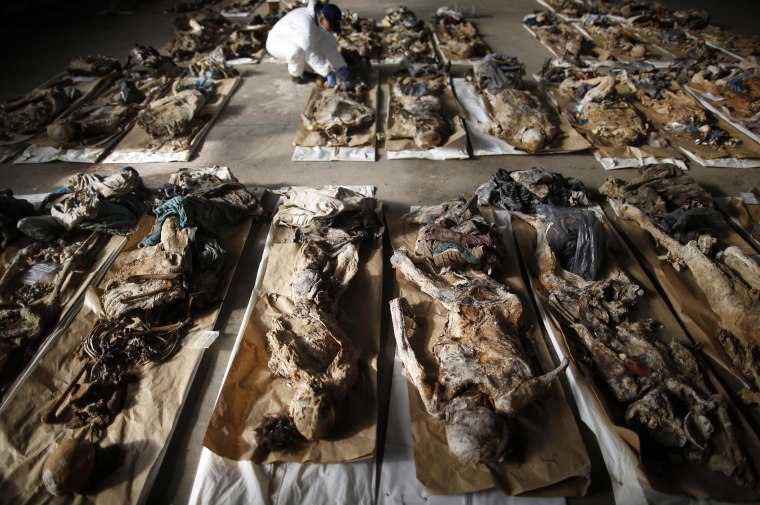Police arrested three Bosnian Serb former soldiers on Thursday on suspicion of war crimes against Muslim Bosniaks following the discovery last year of what is potentially the largest mass grave of Bosnia's 1992-95 conflict.
The state prosecutor said Mitar Vlasenko, 59, Rade Vlasenko, 54, and Drago Koncar, 53, were arrested in the village of Kozarac near the northwestern town of Prijedor. Police were searching more locations for evidence.

Thousands of Bosniaks and Croats perished in Bosnian Serb detention camps in Prijedor as part of bid to drive non-Serbs from the land.
Around 100,000 people died in the war, the large majority of them Muslim Bosniaks.
"The men were part of the Serb Republic army and are suspected of killing seven Bosniaks in the area of Kozarac," the prosecutor's office said in a statement. It said the killings took place between May and June 1992.
Last year, Bosnian forensic experts unearthed the remains of 435 people from the Tomasica mass grave near Prijedor.
It is believed to contain the remains of around 1,000 victims, which would make it the largest mass grave in the Balkan country. Experts are working on identifying the victims.
So far, 178 have been identified through DNA analysis, among them a man and his six sons.
The youngest son was 18 and the oldest 29 when they were killed, said Lejla Cengic, a spokeswoman for the government's Institute for Missing Persons.
In 2001, forensic experts found 373 victims they believe were originally buried at Tomasica, then reburied at a second site as part of a bid to conceal evidence of atrocities.
Exhumations halted over the winter but are expected to resume soon.
Around 1,200 people are still registered as missing in the Prijedor area.
The Hague-based United Nations war crimes tribunal has sentenced 16 Bosnian Serbs to a total of 230 years in prison for atrocities in the Prijedor area.